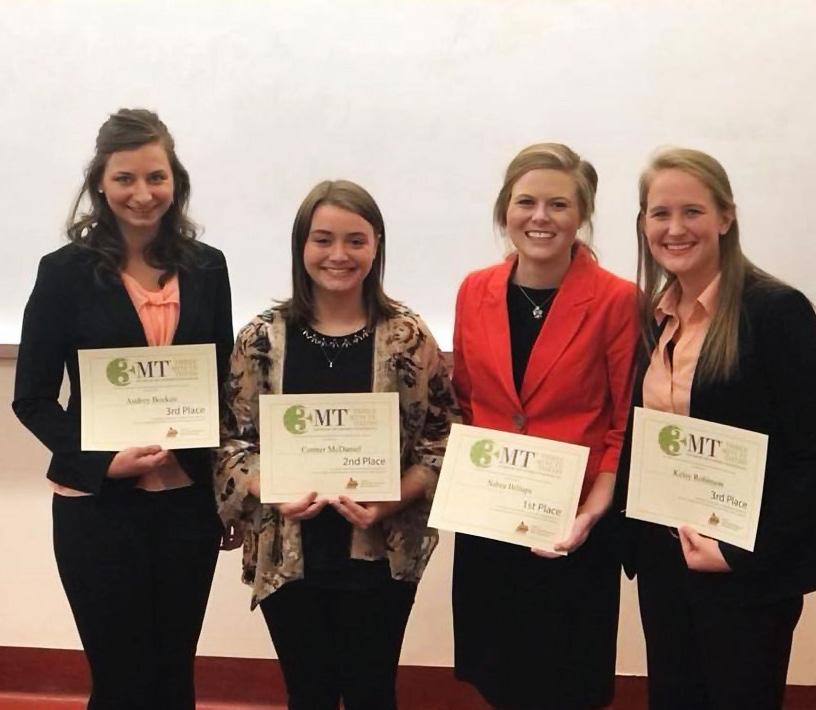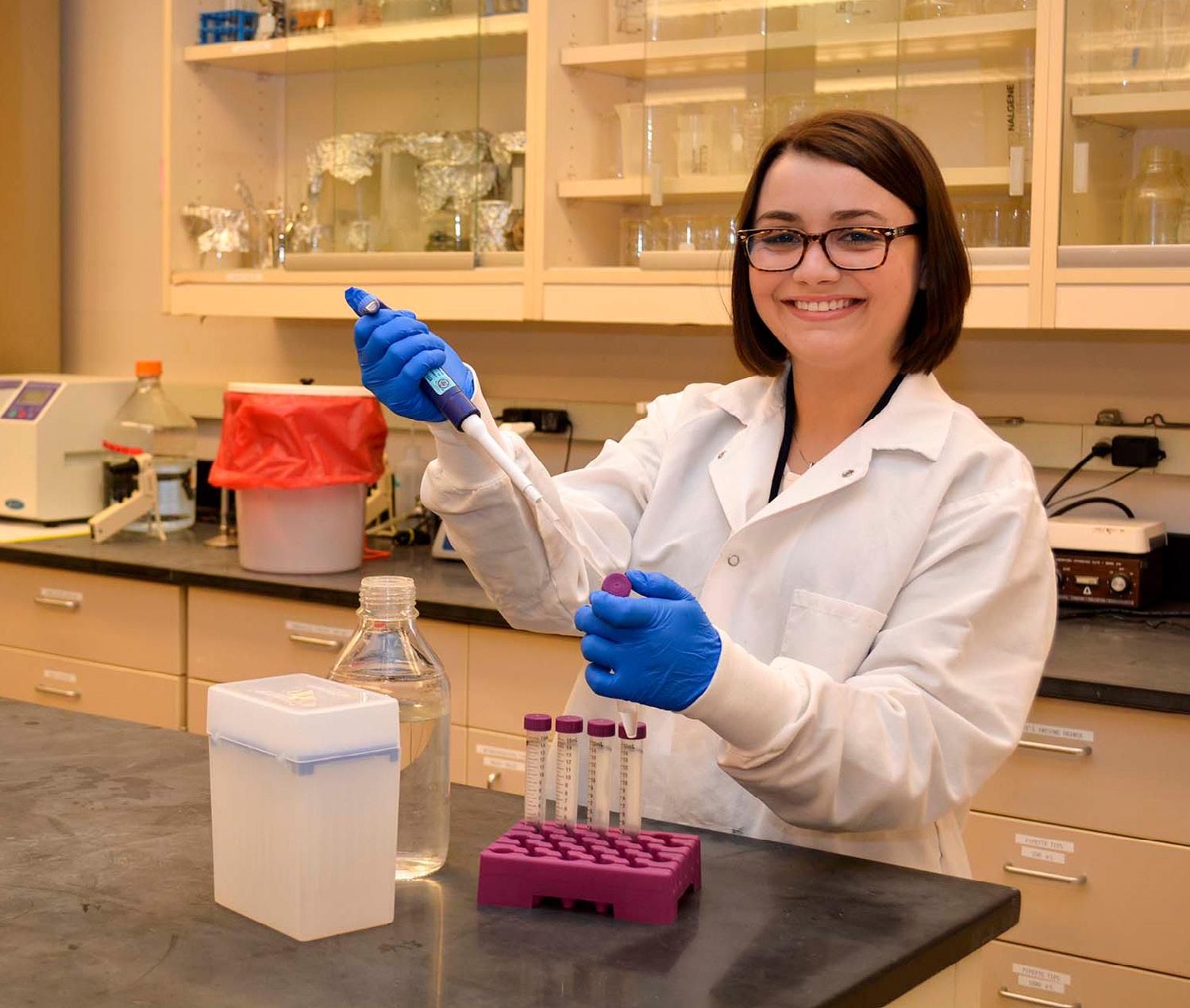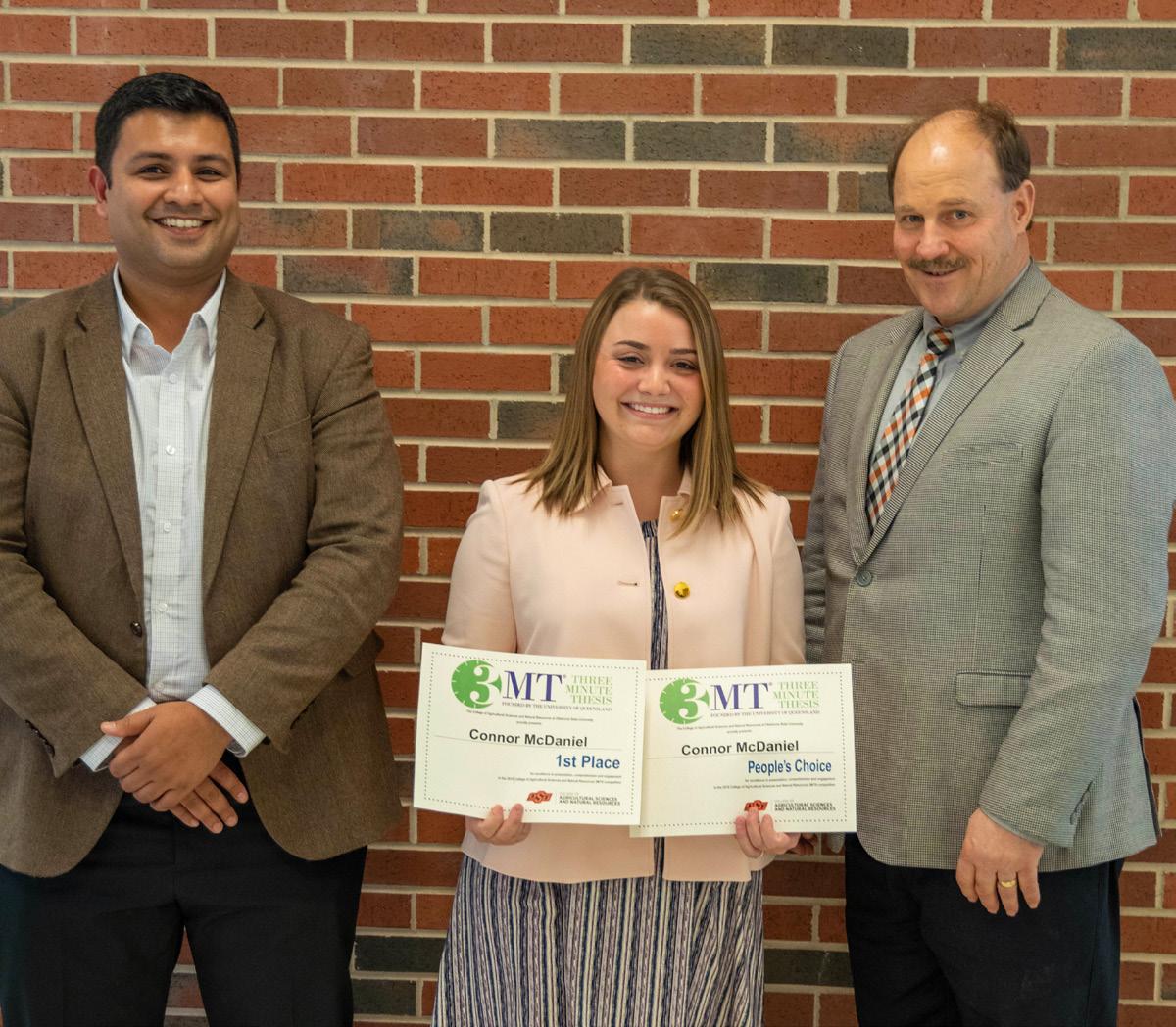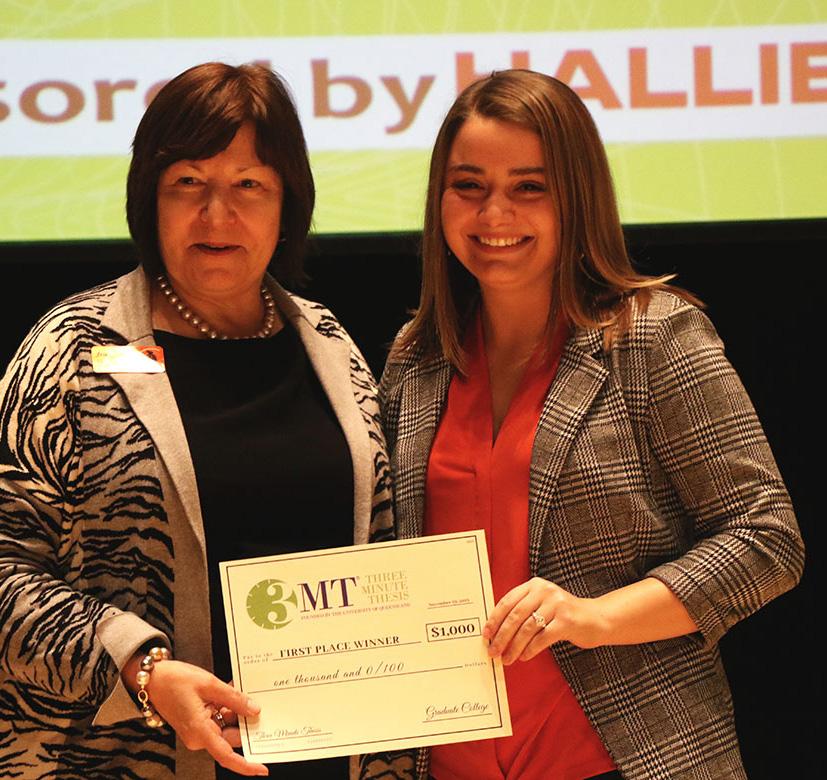
4 minute read
Practice Makes Perfect
Hours of studying, researching, writing and learning. Then you’re watching a timer count down from three minutes and it is all the time you have to explain the work you’ve been put into your research. This is a small glimpse of the pressure competitors of the Three Minute Thesis contest face as they give presentations on their research. Conner McDaniel, food science graduate student, has experienced this multiple times over the past three years.
Originally from Ardmore, Oklahoma, McDaniel transferred to Oklahoma State University after receiving her associate degree from Murray State College. She graduated from OSU in 2017 with a bachelor’s degree in food science. In 2019, she received her master’s degree and is currently working on her doctorate in food science.
Advertisement
McDaniel definitely found a passion for the field of food science. However, this wasn’t her original major when she came to OSU.
“I was a different major when I first came here, and then I took Dr. Ram’s Intro to Food Science course,” McDaniel said. “Prior to that, I didn’t have any knowledge about the major, and through his class and talking with him I decided to change.”

Conner McDaniel
Photo by Megan Gross
Within the field of food science, McDaniel became interested in food safety and started conducting research under the mentorship of Ravi Jadeja, OSU food safety specialist. Her research involves working with different antimicrobials to improve produce safety. By reducing pathogens, the food industry can use various alternatives to what is currently used so the safety of produce is increased, McDaniel said.
“In the U.S., each year approximately 48 million people get sick due to foodborne illnesses,” Jadeja said. “Fresh produce is the number one cause of foodborne illnesses in the country. Conner’s research focuses on the control of pathogens from fresh produce. This research has the potential to improve the overall safety of fresh produce and reduce foodborne illnesses.”
It is vital to find alternative ways to reduce contamination in produce in order to lower the number of people who are becoming sick from foodborne illnesses, McDaniel said.
McDaniel noticed early on that her research, while important, was complicated and hard to explain to people who do not have a science background. She would try to discuss her research with friends and family members, but found it was difficult to convey exactly what she was doing.
“Researchers are often found using ‘scientific lingo’ to explain their research,” Jadeja said. “This makes it very difficult for anyone from outside of the scientific community to understand the importance of the research.”
McDaniel began learning about a research communication competition called the Three Minute Thesis (3MT). The 3MT challenges graduate students to provide a three-minute oral presentation over their research in a way the general public could understand. One static slide is the only visual aid the competitors can use during their presentation.
The competitors are given three minutes to present their research to a panel of judges, all while watching their time count down, McDaniel said.
“My first years of my master’s [degree], Dr. Jadeja encouraged me to participate in it,” McDaniel said. “I was terrified of public speaking and had no interest in doing it.”

Conner McDaniel wins collegiate level of 3MT competition.
Photo by Megan Silveira
Like many people, McDaniel wasn’t confident in her public speaking ability, and the thought of standing in front of a crowd and presenting her research scared her. With encouragement from her faculty mentor, she decided to participate in the 3MT. She placed second in the collegiate-level competition her very first year.
The next year, she placed first in the collegiate-level competition and earned the right to compete at the university-level. During her third year competing in this contest, she won both the college and the university contests. With each new year, her speaking abilities and confidence grew. In March of 2020, she was able to compete at the regional competition in Birmingham, Alabama.
“I felt proud because this has been three years in the making for me,” McDaniel said. “It was refreshing to see how far I’ve come, from the scared person who didn’t think she could stand in front of anybody and talk and then being able to do something like that. I think it really just proves you really can do anything you set your mind to and overcome any fears or obstacles you face and get to where you want to be if you put in the time and the work to get there.”
The 3MT contest has helped McDaniel develop the ability to explain her research in a way that is easy to understand and built her confidence in public speaking, Jadeja said.

Conner McDaniel wins 2019 university level 3MT Competition
Photo by James Sullivan
“When you think about three minutes and about public speaking, you think it’s such a long time, especially when you have no confidence in yourself to do it,” McDaniel said. “When you get down to it and actually try to explain everything you do research wise in only three minutes, it gets a lot more complicated.”
The experience of competing in the 3MT has been eye opening for McDaniel. It made her realize the importance of communicating her research in a way that is easy for people to understand so the significance of her research can be realized, she said.
“Being able to explain your research is so important and it helps the general public want to adopt recommendations,” Jadeja said. “It also helps to increase funding opportunities for research projects.”
McDaniel said she encourages anyone who is interested in presenting their research in the 3MT to do it.
“At the end of the day, on the day of the competition its only three minutes,” McDaniel said. “Anybody can do anything for three minutes and those three minutes could be what you need to help build the confidence to be a better public speaker.”
STORY BY SADIE RAASCH






